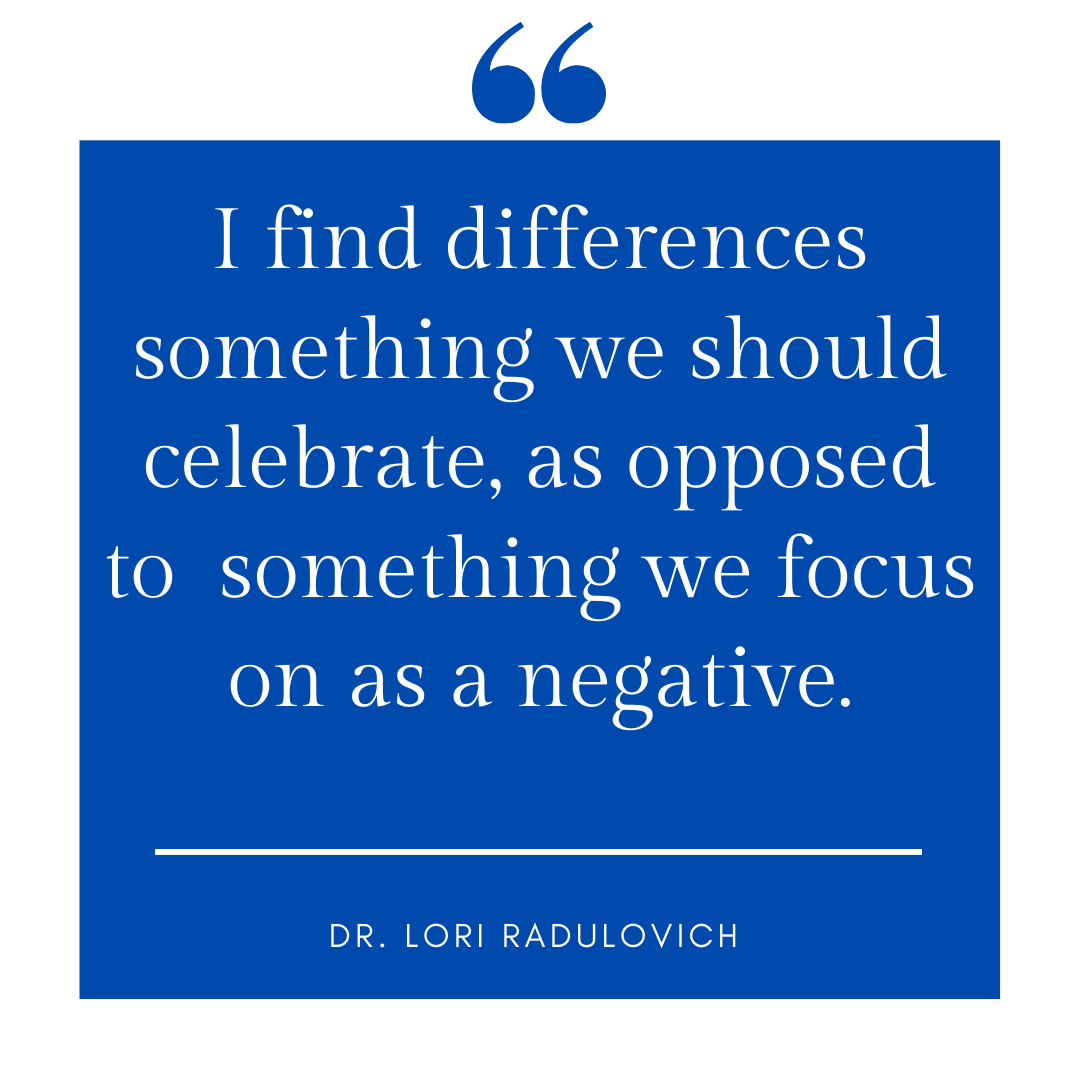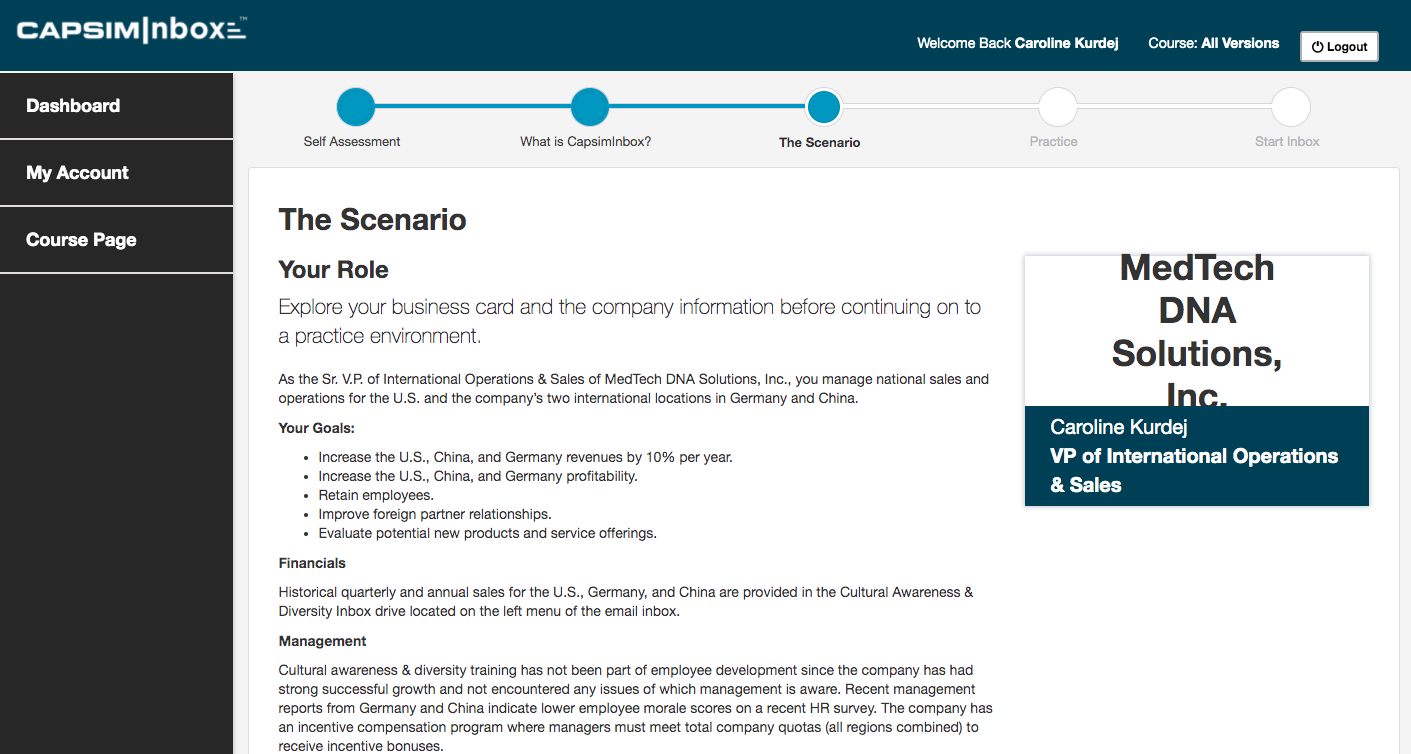How Dr. Lori Radulovich Built an Inbox Simulation to Develop Cultural Awareness
June 15, 2020

Dr. Lori Radulovich, Associate Dean of Undergraduate Business Programs at Baldwin Wallace University’s School of Business, is also the President and Owner of LPR Consulting Group. Her nearly three decades of combined experience in the financial industry and academia make her a seasoned consultant to entrepreneurs and multinational firms.
From Professor and Consultant to CapsimInbox Author
Her experiences made her realize students aren’t generally trained on how to approach other cultures. While classrooms teach international business with a short chapter or two from a textbook, students never genuinely immerse themselves in different cultures.
Radulovich engages her students with creative teaching methods ranging from dressing up and eating culture-specific foods, to entirely virtual presentations and even running through Chinese marriage ceremonies. And yet a consistent problem emerged. Students weren’t challenging their approaches to culture.
Naturally, Dr. Radulovich leveraged her writing skills and doctoral studies from her publication in multiple world journals to author a new project. This one, virtual. The CapsimInbox: Cultural Awareness simulation exposes students to scenarios that increase awareness, highlight a more experiential approach toward embracing different cultures, and force students to answer questions that challenge their previous attitudes toward culture.
“Until you immerse yourself into behavior situations,” Dr. Radulovich said, “you really don’t realize that you’re not making the right decisions.”
The simulation forces students to stop, acknowledge the faults in the decisions they make, and move forward with better ones.
“Students are really trained on a business perspective—how a business goes international,” Dr. Radulovich said. “Sometimes, students might get one chapter about understanding culture, international marketing, or international business. But to really make decisions as if they’re running an international business? No, they never get that in a typical business class. Anywhere.”
Radulovich’s simulation is anything but typical. We’d love to share an authentic inside look of what it looks like for students to enter the role of Sr. VP of International Operations & Sales at a leading manufacturing company specializing in medical equipment for genetic testing with locations in the U.S., Germany, and China.
As they respond to situations in the form of emails and instant messages, participants must manage the cross-cultural competencies, leadership styles, and communication skills needed to be effective in each region.
Throughout her 28 years at Baldwin Wallace University, Dr. Radulovich found her students are like sponges. “They want to explore, experience, and throw themselves into different cultures,” Radulovich said. “Increasing awareness is critical.”
Use Cases Beyond the Classroom
Dr. Radulovich has already used her tools in both the academic and corporate settings. She’s conducted cultural awareness sessions with many companies herself. In an academic environment, the tool can be used as a pre- and post-test assessment.
Other use cases include preparing study abroad students for upcoming travel. In a corporate setting, what companies wouldn’t benefit from increased collaboration with others?
These scenarios measure essential cultural awareness skills that prepare students to become leaders in a diverse workplace. As businesses continue to become more accessible globally, interacting with a diverse group of people becomes inevitable.
Dr. Radulovich wants participants to walk away with increased self-awareness. Her simulation enables learners to evaluate how they convey their communication, management, and leadership styles. As well as how participants cognitively approach a problem.
“Appreciate diversity and don’t judge,” Dr. Radulovich said. “Cultural awareness and an appreciation for differences can make the difference in leading to better outcomes.”
Being aware of differences can strengthen an organization, particularly in our world today. Radulovich finds having multicultural teams lead to different approaches, unique solutions, and optimal problem-solving.
Ultimately, cultural awareness builds sensitivity, strengthens relationships, and encourages teams to look at challenges through different lenses. Incorporating awareness increases the value, productivity, and performance of diverse and cohesive teams.

Create Your Own Inbox Simulation
Cultural awareness is just one example of how CapsimInbox can elevate your students’ learning. Will you be next to create a meaningful learning experience for your students?
Check out our free authoring platform to build your own simulated learning experience today!
Getting to Know CapsimInbox: Cultural Awareness
In this webinar, Dr. Lori Radulovich shares the story of how she created her inbox simulation and shares advice on how to integrate it into your course.



.png?width=80&name=1-questions%20(1).png)